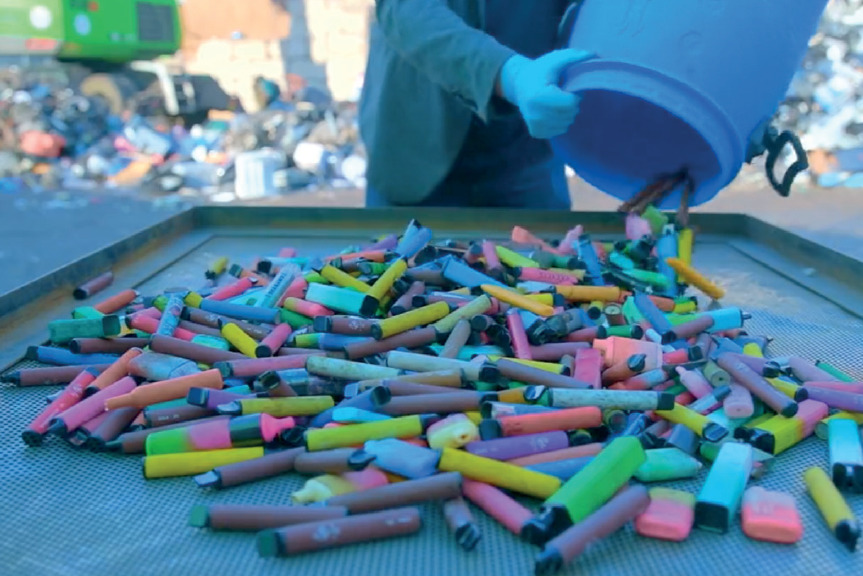Independent retailers have been warned that over 90% of small vape suppliers are failing to comply with environmental regulations.
Research by Material Focus, a not for profit leading the recycle your electricals campaign, analysed the company records of over 150 of the biggest UK vape suppliers and found that only 16 had registered to comply with regulations for waste electricals, portable batteries and packaging (WEEE).
And yet, those identified have become a member of a vape industry trade association, such as the UKVIA or IBVTA, and also registered their products with the Medicines and Healthcare Products Regulatory Agency (MHRA).
In addition, the larger vape producers and importers, who have only recently registered, are not covering the true costs of collection and recycling as vapes are falling under normal small electricals rather than their own special category.
Sales of disposable single-use vapes are now around 138m per annum, with millions thrown away every week. Last year, Material Focus revealed that at least 1.3m are being littered and binned each week. Vapes contain a range of precious metals, including lithium and copper, which when thrown away the materials are lost forever.
Fed to help stores with vape recycling
Executive director, Scott Butler said: “Disposable single-use vapes are a quadruple environmental threat – losing critical raw materials, the impact of hazardous waste, fire risk and the loss of plastics. The environmental responsibilities of vape producers are very clear. Any company that is producing significant quantities of electrical items is required to register, report their sales and finance the cost of their product being recycled. Retailers are also responsible for ensuring that it’s easy for their customers to recycle these products by providing recycling drop off points in their stores.
“It is shocking that it seems that the majority of the smaller vape producers in the UK aren’t complying with these long-standing environmental regulations. And for those larger producers that have only recently registered, they need to bear the full costs of collecting and recycling these complex to recycle products which may mean paying significantly higher fees than they are currently paying. As sales and profits have boomed the environmental impacts and costs of collecting and recycling waste vapes have been disregarded.”
Companies must register as a producer annually, depending on how many electricals they sell. Less than five tonnes per year companies are required to register with their environmental regulator as a small producer. Or, for more than five tonnes per year – pay to join a producer compliance scheme (PCS) who will take on the companies obligations to finance the collection, treatment, recovering and disposal of WEEE.
Scott also told Better Retailing: “Producers are responsible for financing recycling costs, and looking at the bigger picture, collection is a small thing for them. Customers and retailers need to go back up the supply chain and ask questions and demand support. The solution relies with the supplier, and they need to help their retailers – it’s the legal and ethical thing to do.
“Trade bodies should be representing the interest of their members, but also represent the issues they face, and with disposables arguably the most damaging product made [in regard to the environment], they need to help their members tackle it and encourage them to do so. We know that 80% of the UK wants to recycle, but the biggest challenge can be the ease of it, and recycling vapes seems to be impossible right now. It’s difficult to tell stores what they can do, so I’d suggest they contact their supplier and work with them to propose a solution.”
He added: “Maybe in the future retailers can incentive recycling vapes in the form of a deposit scheme, or discount on a future purchase, but that’s for the retailer to decide – it doesn’t need to be a legal obligation.”
Read more recycling news and advice



Comments
This article doesn't have any comments yet, be the first!